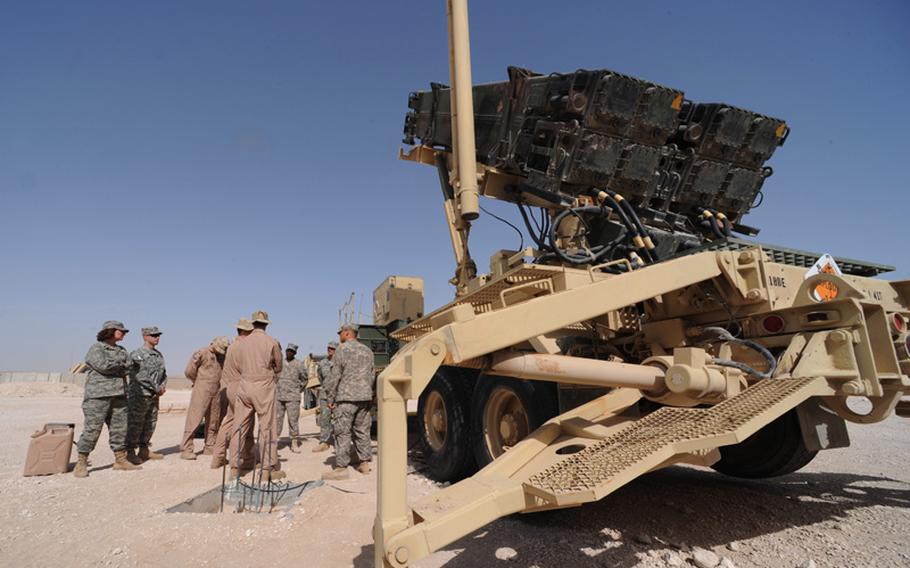
Servicemembers tour a Patriot missile launcher at a non-disclosed Southwest Asia location in this Jan. 2010 photo. (Michelle Larche/U.S. Air Force)
STUTTGART, Germany — The U.S. will send two anti-missile Patriot batteries accompanied by 400 troops to Turkey as part of a NATO plan to help shield Turkey from a potential airstrike from Syria, according to the Defense Department.
Defense Secretary Leon Panetta signed an order on Friday approving the deployment during a visit to Incirlick Air Base, according to Pentagon spokesman George Little.
"The United States is proud of its close partnership with the Turkish military, which is helping to promote stability at a time of considerable turmoil in the region," Little said in a statement. "With other NATO members, the United States is determined to help its ally Turkey defend its border with Syria."
NATO spokeswoman Oana Lungescu welcomed the U.S contribution along with similar plans by Germany and the Netherlands.
“These allies have made clear that they are working closely together to make sure the deployment takes place as soon as possible,” Lungescu said in a statement Friday.
The authorization comes a day after the Netherlands announced that it would send two Patriot batteries to Turkey. Germany, the third nation that is part of the NATO effort to bolster Turkey’s air defenses, is expected to send two batteries also.
“This is a strong signal of allied solidarity,” NATO Secretary-General Anders Fogh Rasmussen said on Thursday during a news conference with Dutch Prime Minister Mark Rutte.
Rasmussen, as he has previously, emphasized that the deployment of Patriot missiles is for defensive purposes only.
“It will in no way support a no-fly zone or any offensive operation,” he said. “Its aim is to deter any threats to Turkey and to defend Turkey’s population and territory.”
Last week, NATO foreign ministers formally approved the plan to send Patriot missiles to Turkey, a move that comes amid alarm over the Assad regime’s access to chemical weapons, which could potentially be mounted on missiles or directed at Syrian rebel forces. Since then, Rasmussen as well as Russian officials, have made public statements that Syrian President Bashar Assad’s regime could be nearing collapse.
There is concern that Assad, under pressure from rebel forces, could become desperate enough to deploy chemical weapons against his enemies. President Barack Obama has warned Assad of “consequences” should he use those weapons.
Meanwhile, Rasmussen also cautioned that if Syria were to deploy chemical weapons it would generate an “immediate reaction” from the international community. Such comments suggest there could be a military response if Syria uses its chemical weapons.
Turkey’s request three weeks ago for NATO air defense support comes after months of cross border shelling that has killed several Turkish civilians.
It remains unclear how long the Patriot deployments will last. However, The New York Times reported Friday that all six batteries are expected to be operational by the end of January.